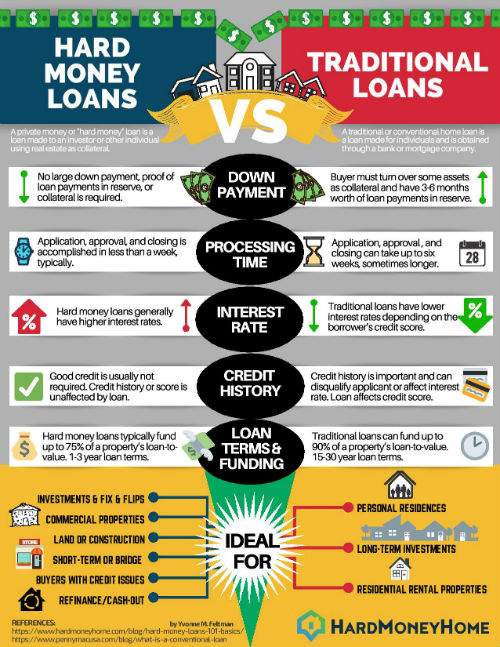The Hard Money Lending Process: Everything You Need to Know
What do you mean by hard money lending?
Hard money lending is a type of short-term loan that is secured by real estate. Unlike traditional bank loans, which rely on the borrower’s creditworthiness and income, hard money loans are based on the value of the property being used as collateral. These loans are typically used by real estate investors who need quick financing for a property purchase or renovation project.
How does the hard money lending process work?
The hard money lending process begins with a borrower finding a hard money lender who is willing to provide the loan. The lender will evaluate the value of the property that will be used as collateral, as well as the borrower’s ability to repay the loan. If the lender determines that the loan is a good investment, they will offer the borrower a loan with specific terms, including the interest rate, loan amount, and repayment schedule.
What is known about hard money lenders?

Image Source: hardmoneyhome.com
Hard money lenders are typically private individuals or small companies that specialize in providing short-term loans for real estate investments. These lenders are able to offer quick financing with flexible terms because they are not bound by the same regulations as traditional banks. However, this flexibility comes at a cost, as hard money loans often have higher interest rates and fees than traditional loans.
What is the solution for borrowers seeking hard money loans?
For borrowers seeking hard money loans, the key is to do thorough research and due diligence before choosing a lender. It’s important to compare rates, terms, and fees from multiple lenders to ensure that you are getting the best deal possible. Additionally, borrowers should have a clear plan for how they will use the loan funds and how they will repay the loan in a timely manner.
Information about the hard money lending process
One of the main advantages of hard money loans is that they can be funded quickly, often within a matter of days. This can be crucial for real estate investors who need to act fast to secure a property or take advantage of a time-sensitive opportunity. However, borrowers should be aware that hard money loans come with higher interest rates and fees than traditional loans, so they should only be used when necessary and with a clear exit strategy in place.

Image Source: maggiocapital.com
Another important aspect of the hard money lending process is the loan-to-value (LTV) ratio. This ratio is used by lenders to determine the risk of the loan and is calculated by dividing the loan amount by the value of the property being used as collateral. Lenders typically prefer to offer loans with lower LTV ratios, as this reduces their risk in case the borrower defaults on the loan.
It’s also important for borrowers to understand the terms of the loan agreement before signing on the dotted line. This includes the interest rate, repayment schedule, fees, and any other conditions that may apply. Borrowers should be prepared to make timely payments on the loan and should have a plan in place for how they will repay the loan in full by the end of the term.
Overall, the hard money lending process can be a valuable tool for real estate investors who need quick financing for their projects. By understanding how the process works and what to expect, borrowers can make informed decisions about when and how to use hard money loans to achieve their investment goals.
Conclusion
In conclusion, the hard money lending process is a unique and valuable financing option for real estate investors. By working with a reputable lender and understanding the terms of the loan agreement, borrowers can secure quick financing for their projects and achieve their investment goals. However, it’s important to approach hard money loans with caution and have a clear plan for repayment to avoid potential pitfalls.
FAQs:
1. What are the key differences between hard money loans and traditional bank loans?
Hard money loans are typically based on the value of the property being used as collateral, while traditional bank loans rely on the borrower’s creditworthiness and income. Hard money loans also have higher interest rates and fees than traditional loans.
2. How quickly can a hard money loan be funded?
Hard money loans can typically be funded within a matter of days, making them a quick financing option for real estate investors who need to act fast.
3. What should borrowers look for in a hard money lender?
Borrowers should look for a reputable lender with a track record of successful loans, competitive rates, and clear terms. It’s also important to compare rates and fees from multiple lenders to ensure the best deal.
4. What happens if a borrower defaults on a hard money loan?
If a borrower defaults on a hard money loan, the lender has the right to take possession of the property used as collateral. The borrower may also face legal action to recover the outstanding balance of the loan.
5. When should borrowers consider using a hard money loan?
Borrowers should consider using a hard money loan when they need quick financing for a real estate investment project and are confident in their ability to repay the loan in a timely manner. Hard money loans should be used strategically and with a clear plan for repayment.
hard money lending process
